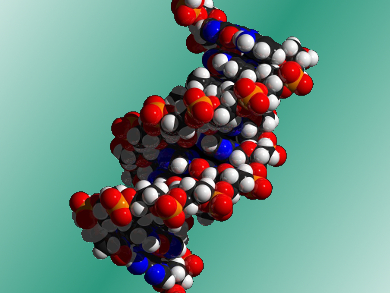In most cases, the human immune system can tackle the influenza virus fairly easily. Occasionally however, patients with severe influenza suffer life-threatening acute respiratory distress syndrome (ARDS). The reason for this has been unclear up to now. The case of a two-and-a-half-year-old girl hospitalized due to severe influenza may help to solve this mystery.
A team of researchers led by Jean-Laurent Casanova, The Rockefeller University, New York, USA, has sequenced the girl’s genome and found mutations in both alleles of the transcription factor interferon regulatory factor 7 (IRF7). IRF7 is important for our immune system because it upregulates the expression of antiviral proteins, so called type I and type III interferons, upon virus infection. The scientists measured the girl’s levels of these interferons and found that they were extraordinarily low. As a possible therapy for severe influenza, the researchers suggest treatment with interferon-α, a type I interferon which was not produced by the girl’s immune system at all.
Although this specific type of mutation is very rare, these findings provide clues for further research regarding the causes of severe cases of influenza.
- Life-threatening influenza and impaired interferon amplification in human IRF7 deficiency,
M. J. Ciancanelli, S. X. L. Huang, P. Luthra, H. Garner, Y. Itan, S. Volpi, F. G. Lafaille, C. Trouillet, M. Schmolke, R. A. Albrecht, E. Israelsson, H. K. Lim, M. Casadio, T. Hermesh, L. Lorenzo, L. W. Leung, V. Pedergnana, B. Boisson, S. Okada, C. Picard, B. Ringuier, F. Troussier, D. Chaussabel, L. Abel, I. Pellier, L. D. Notarangelo, A. Garcia-Sastre, C. F. Basler, F. Geissmann, S.-Y. Zhang, H.-W. Snoeck, J.-L. Casanova,
Science 2015.
DOI: 10.1126/science.aaa1578




